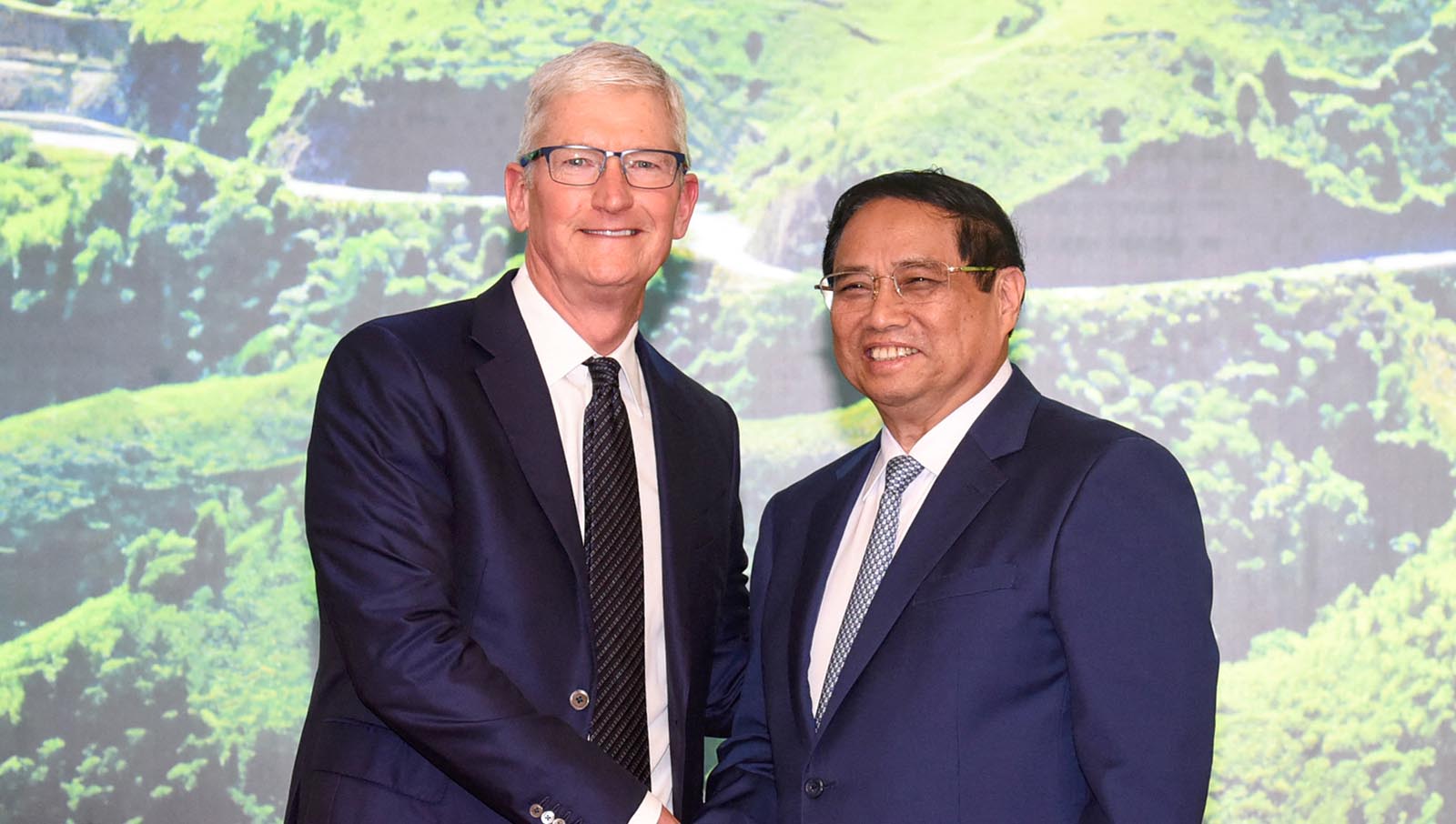Tim Cook, CEO of Apple, Explores Supply Chain Diversification in Vietnam, India, and Indonesia
In an effort to diversify its supply chain and reduce reliance on China, Tim Cook, CEO of the American technology giant Apple, recently embarked on a tour of Vietnam, India, and Indonesia. During his visits, Cook met with government officials and business leaders to explore opportunities for expanding Apple’s manufacturing operations in these countries.
After visiting Vietnam, where Apple has established a significant presence with over 200,000 local jobs, Cook made his way to Jakarta, Indonesia. Following a meeting with Indonesian President Joko Widodo, Cook expressed interest in potentially setting up a manufacturing plant in Indonesia. He praised the country’s investment potential, stating, “I think Indonesia’s investment potential is endless. We believe in this country.”
In addition to Indonesia, Apple has been increasing its manufacturing operations in India, with plans to double iPhone production in the country by 2023. The company is seeking to shift a significant portion of its production chain to these Southeast Asian countries to diversify its manufacturing base.
Meanwhile, Foxconn, Apple’s contract manufacturer in China, has experienced a drastic decline in employment at its Zhengzhou campus. Reports indicate that the number of employees has dropped from a peak of 300,000 to just 60,000 to 70,000, with many shops in the surrounding area closing down. This decline has been attributed to Apple’s relocation of some production lines to other countries, including India.
The recent introduction of China’s “Counterespionage Law” has further raised concerns among foreign businesses operating in the country. Lovely, an economist at the Peterson Institute for International Economics, noted that the law has deterred foreign investment in China, leading to a significant withdrawal of foreign capital from the country.
As Apple and other multinational companies seek to diversify their supply chains and reduce reliance on China, the global economic landscape continues to shift. The ongoing challenges faced by foreign businesses operating in China underscore the need for companies to explore alternative manufacturing options in countries like Vietnam, India, and Indonesia.
As Cook continues his tour of Southeast Asia, the future of Apple’s manufacturing operations and the broader global supply chain remains uncertain. However, one thing is clear – the dynamics of international trade and investment are rapidly evolving, with implications for both companies and countries around the world.
